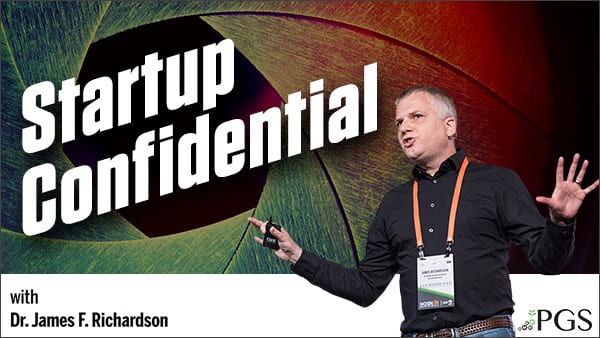PODCASTS / E107

Ep. 107 – Is The Bad Funding Environment Necessarily a Bad Thing?
December 1, 2023
There are a lot of founders who should not be founders. They don’t know how to raise money, put together a financial plan, manage cash, manage people, take calculated risks, the list goes on and on.
The worst is to be un-coachable and totally inexperienced. That’s also the definition of a hobbyist too. They really are fine with mediocrity because the entire thing is a vanity act of self-expression.
I think what newer founders don’t appreciate is just how oversupplied CPG is with brands with early-stage brands and with brands doing basically the same thing.
One virtue of Liquid Death is that the founder understood the product was not innovative per se, only the packaging and only in the context of water. What his category was not over-supplied with was highly memorable, in-your-face, shock jockish brand identities and marketing.
Mike Cessario knows how oversupplied the grocery store is and really hit a Big Mallet to get attention.
The other thing Liquid Death exposes is that self-funded launches and early ramps are critical to success. Starting with $3M is not a bad idea. You don’t always need that much, but if your MOQ is huge like a beverage company encounters, then you absolutely do.
I know companies that used home equity and credit cards to get started. It can work if you’re really smart and careful and focus ONLY on local distribution. But the journey to scale will be twice as long, if not three times as long. For artisans, this is totally fine. Scale is almost an after thought.
Tight funding has no effect on the artisans, though, because they’re not 16 years old trying to drive a Ferrari after only two hours driving an automatic sedan. They’re not stupid.
The tight funding environment is discouraging the worst of the worst founders. ANd that is what makes this good for the entire ecosystem.
I’m talking about the founders who intend to rely on institutional money to shove product out, buy growth, buy distribution and who generally ignore the consumer entirely.
You might argue Liquid Death was exactly like this, but, remember, he tested his ability to generate pre-orders from real humans with his original slasher-cartoon content. He waited UNTIL consumers responded before he hit “Go.” Not that arrogant at all, really.
And there is an ocean of greedy shitheads out there waiting to monetize that greed – agencies of all kinds, brokers, etc. love to work with brands intoxicated with drunken sailor money.
Yet, all these overfunded, overhyped brands do is drive up the costs of everything, crowd shelving from more competent, underfunded operators. It’s a form of go-to-market bullying really.
I can’t stand these businesses or the people who operate them. I pray for them to go bankrupt every morning because they disrespect everything about the consumer at the end of the day.
Strong businesses should get funded, but in CPG, defining a strong business is pretty hard to do on the basis of the first $1M in sales. There’s no predictive data set that takes you from some goofy VC list of $1M brands to the 10% of them that will win. And the reason is more human than demand-related.
Throwing $20M at total amateurs not only invites micro-managing investors more likely to push them into stupid risk-taking but it also threatens to distort reality for the founders themselves who suddenly don’t understand expenses at all. They’re that flush. Under-estimating the ability for that many years of runway to lead amateurs astray is pretty easy.
Only a very mature set of founders can sit carefully on $20M and not blow it all in two years chasing this or that illusory path around “GO” on the monopoly board.
I really hope that VC just exits CPG for good now, although I doubt this will happen outside of food where it is so obvious that the model doesn’t work at all.
Instead, founders will need to network for angel cash, be much more focused and disciplined and yes fewer people will get to play.
Fewer, better businesses actually improves the whole ecosystem in my opinion.